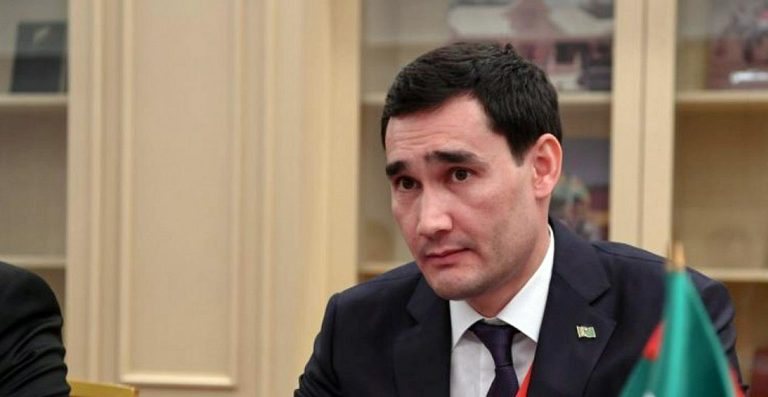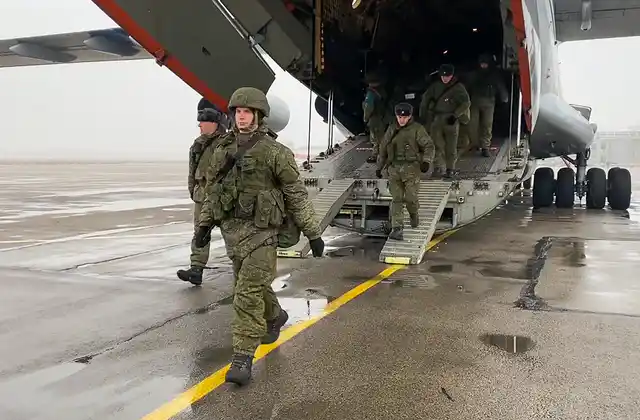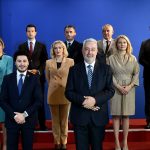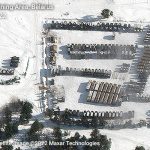The President of Turkmenistan started the process of power transfer to his son amid the country’s economic crisis and possible health-caused concerns.
On February 11, at an extraordinary session of the upper chamber of the parliament, the Halk Maslahaty, the President announced his intention to open ‘the way to state administration’ to ‘young leaders’ and called for early presidential elections to be held March 12.
Serdar Berdimuhamedov, the son of the president, was nominated for the post of head of state in early elections. This decision was made at the IX Extraordinary Congress of the Democratic Party of Turkmenistan. Now Serdar Berdimuhamedov holds the position of Deputy Prime Minister. Previously, he served as the Minister of Industry and worked at the Ministry of Foreign Affairs.
Thus, Berdimuhamedov tries to conduct the power transition in the line of family. This choice is expectable. Discussions about soon transit of power in Turkmenistan have been in the air for three years. All this time Berdymukhammedov has been preparing his son for the presidency. Local elites already see Serdar as the president. After analyzing media coverage of his regional visits it is clear that local officials welcome him at the level of the head of state as well.
The democracy level in Turkmenistan is nearly the same as in with North Korea. There are neither independent media, nor political parties free from the state control; the Internet is controlled, special services have enormous powers.
Berdimuhamedov heads the Halk Maslakhaty unconstitutionally because the Constitution of Turkmenistan prohibits the president from being even the parliament member. However, today the president of Turkmenistan concentrates powers of the president, prime minister, head of the executive and legislative branches.
Turkmenistan has been experiencing a food crisis for a long time. It sounds so trite but the country does not have enough bread. There were food-related spontaneous protests in the country. During one of the protests people while standing in line for a long time to get some food products started smashing the windows of the state store. This situation in Ashgabat sounded as a signal of the possible repetition of Kazakhstan protest scenario.
Berdymukhammedov’s decision to step down from the presidency reminds the move of former Kazakh President Nazarbayev who announced his resignation in 2019. Logically, Berdymukhammed leaves the presidency and economic problems to his successor, however, he keeps positions enabling him to control the country and bear no political responsibility for the decisions. It is improbable that Serdar’s presidency will change the social and economic situation in the country for the better. It seems likely that Ashgabat will look for foreign partners to stabilize the situation. Any democratic transformations in the country are unlikely to happen as well. Serdar’s management style is similar to that of his father but his communication methods are even harsher.
The President comes from the most numerous clan Teke. Unlike his predecessor Saparmurat Niyazov, whose rule was based on staff rotation system, Berdymukhammedov built a clan system. His nephews control the home appliance market and the construction business.
Turkmenistan does not accept the policy of staff rotation and still conservatively supports the tribal system. That is why most of the officials in Berdimuhamedov’s government system are the Teke clan representatives. Given that the Teke is the Turkmen largest clan, it is unlikely that the presidency nomination of its representative will make other clans resist and change the process of power transfer. However, recent events in Kazakhstan show that risks may arise 2-2.5 years after regime change without affecting the state’s elites though.
Unconfirmed reports suggest that Berdymukhammedov’s state of health could have been an incentive for early elections.
Berdymukhamedov Senior suffers from diabetes. His sudden month-public disappearance in the summer of 2019 is one of the most convincing signs of his medical condition being worsened.
Niyazov, the predecessor of the current president, also had uncontrolled diabetes. Although in 2006 he died at the age of 66 from sudden cardiac arrest caused by acute heart failure.
Thus, being 2 years younger than Niyazov on his death day, Berdymukhammedov may try to ensure the continuity of power and keep it for his family members in case of possible health deterioration.
With no opposition forces in the country, there are no real risks for the power transfer to the son. Serdar’s presidency will obviously increase the influence of China and Turkey in the country. However, Ashgabat is likely to continue Berdymukhammedov’s policies.





